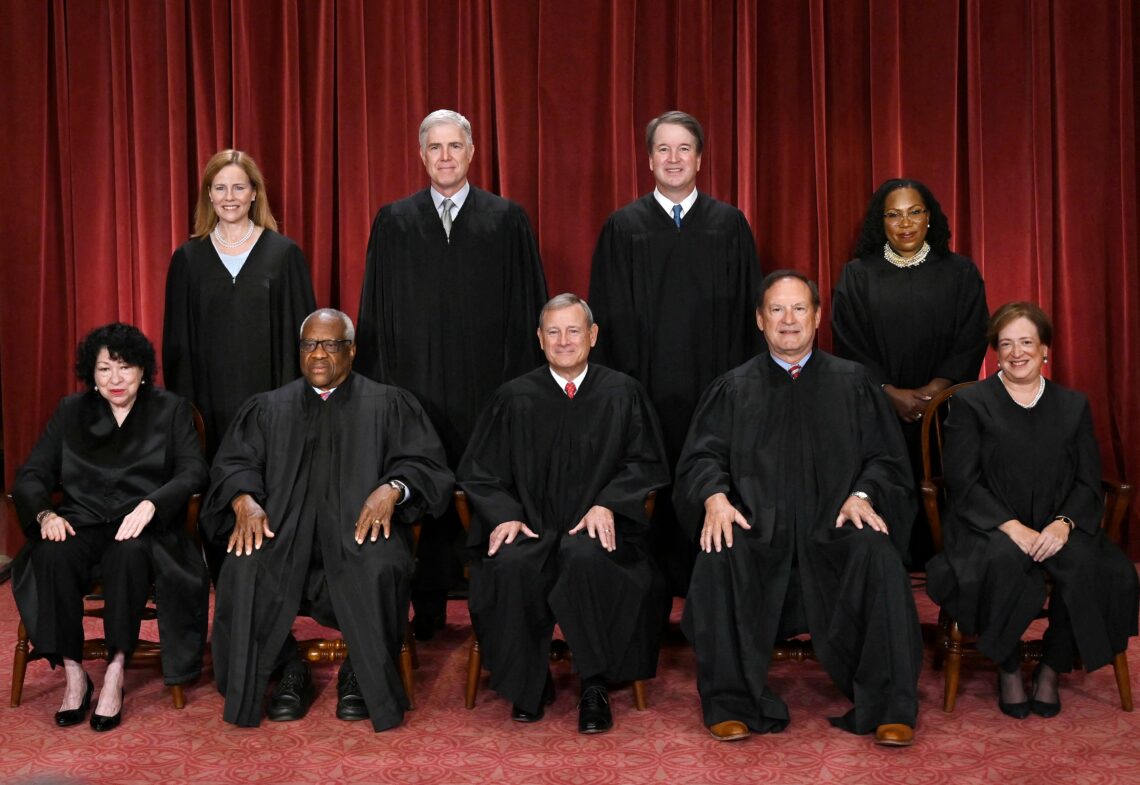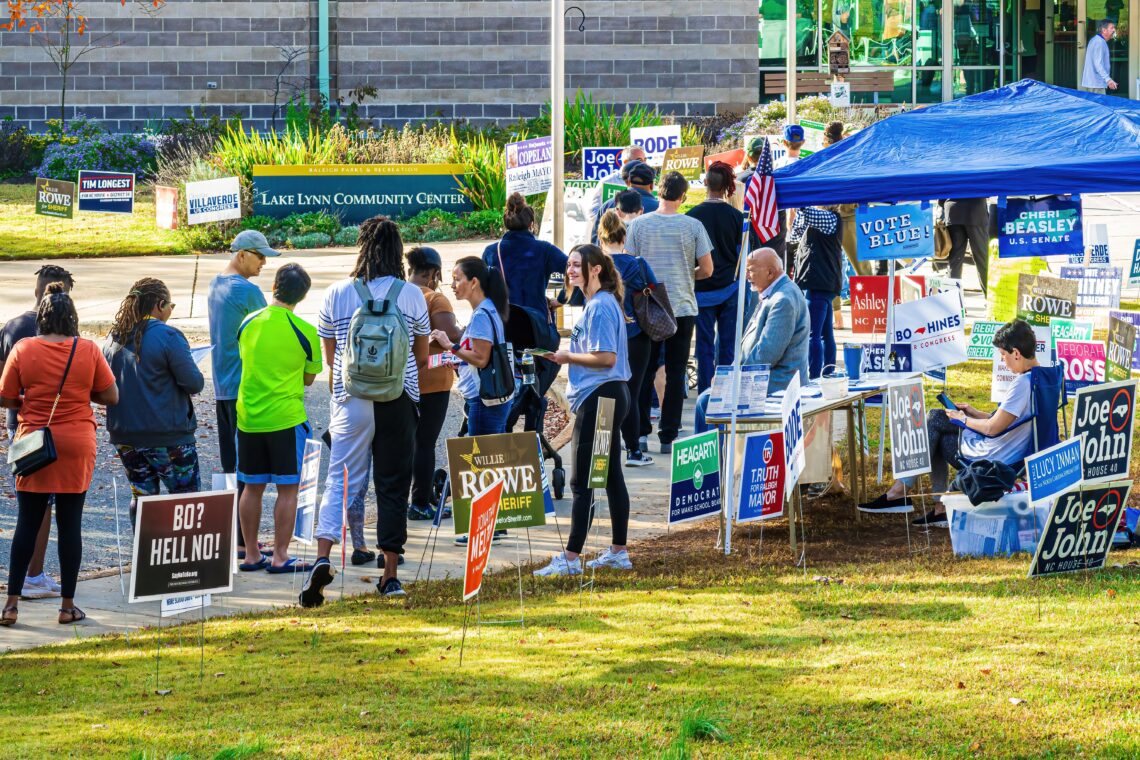Mondaire Jones knows the best defense queer people have is the ballot
In the last three decades, some of the most egregious attacks on equality — the Defense of Marriage Act, Don’t Ask, Don’t Tell, not to mention the infamous 1950 “Employment of Homosexuals and Other Sex Perverts in Government” report — came from Congress. Some of the most significant advances – passage of the Matthew Shepard and James Byrd Jr. Hate Crimes Prevention Act in 2009 and the repeal of Don’t Ask, Don’t Tell in 2010 – also came from Congress.
And while the Supreme Court found in 2015 that some federal jobs protections against discrimination based on sex also protect LGBTQ+ people, the community is still fighting for the Equality Act, which would enshrine legal protections in civil rights law.
But Congress is unlikely to provide much help in 2023 now that Republicans have taken a narrow majority in the House of Representatives. Not only has the GOP historically opposed equality legislation, but many of the Republicans who won their midterm elections did so by weaponizing antipathy towards LGBTQ+ people, advocating for laws banning transgender people access to gender-affirming care, demagoguing equal treatment of transgender students in schools, slurring LGBTQ+ teachers and doctors as “groomers.”
And elections have consequences.
Former Congressman Mondaire Jones (D-NY) sat down with LGBTQ Nation to discuss the possibilities for change in Congress in the coming two years. Jones was first elected in 2020 and is one of the two first-out LGBTQ+ Black members of Congress; he lost his seat in 2022. He co-introduced the Respect for Marriage Act in Congress to ensure same-sex couples continue to have the rights associated with marriage should the Supreme Court overturn the marriage equality case Obergefell v. Hodges.
Jones helped get former President Donald Trump impeached for a second time after his supporters rioted in the Capitol in an attempt to overturn the results of the 2020 presidential election. During his time in Congress, he supported the John Lewis Voting Rights Act. He pushed for even tougher democratic reforms, including automatic voter registration, public financing of elections, and an end to partisan gerrymandering.
So it’s no surprise that Congressman Jones’s message now is that getting better people elected is the key to moving Congress toward equality.
LGBTQ NATION: As the president prepares to address the nation, what are the most vexing problems facing the LGBTQ+ community?
Mondaire Jones: The Supreme Court of the United States — specifically, the far right, six-three supermajority on the Court — continues to pose the greatest obstacle to the lives and livelihoods of community members.

This majority is on a rampage against our rights. We see that in a case that will undermine the ability of same-sex couples not to be discriminated against in the marketplace [he was referring to 303 Creative v. Elanis], where the First Amendment is being weaponized to allow people to be bigoted.
We know that the Court is going to come for marriage equality. As proud as I am of having introduced legislation with Jerry Nadler that passed last year called the Respect for Marriage Act, it’s not lost on me that the Respect for Marriage Act still would not ensure marriage equality in every state in the union for same-sex couples.
More than protecting members of the LGBTQ+ community against discrimination, we’ve got to have our eyes set on creating equity, whether that is in the healthcare context, the housing context, or the student debt context, where members of the community disproportionately experience hardship. That was my project when I wrote a letter to CMS and the CDC asking them to require both public and private insurers to cover an injectable form of PrEP called Apretude at no cost-sharing to the patient.
LGBTQ NATION: What do you see as fighting for queer rights and 2023? What does that mean, and what does that entail?
MJ: Because of the Republican majority in the House of Representatives and too few Democrats in the United States Senate willing to get rid of the filibuster, we have to turn to state-level progress in beating back renewed assault on the LGBTQ+ community, such as these so-called “Don’t Say Gay” bills in Florida and elsewhere.
We also have to call on the Biden administration to use its executive authority to make discrimination less prevalent and to create equity.
LGBTQ NATION: So you brought up state-level legislation where things aren’t looking that good for us over the past few years. At least a hundred bills have been introduced to curtail rights. What can we do to stop that?
MJ: The good news is that we have won public opinion over the past decade when it comes to the community’s entitlement to the same rights and liberties that our cisgender, heterosexual counterparts enjoy.
However, because of an electoral system plagued by voter suppression, voter disenfranchisement, and unlimited spending by corporate special interests, the people we see in power often do not reflect the country’s mood.
We have to continue to build and renew the movement for liberation through organizing at the grassroots level and defeating those who are hostile to the humanity of our community.
While also making sure we take back the House and keep the Senate and the White House in the 2024 elections because only the Democratic majority in this country can be trusted to protect the LGBTQ+ community.
“We have to continue to build and renew the movement for liberation through organizing at the grassroots level and defeating those who are hostile to the humanity of our community.“Mondaire Jones
LGBTQ NATION: So you’re saying it comes down to who’s elected, but what does the community do once we have a group of people in Congress? You were in Congress. What did you see LGBTQ+ activists doing that maybe could have been more effective?
MJ: Well, I appreciate this question.
Several high-profile LGBTQ+-focused organizations spend more time patting themselves on the back for the work that they do and dining with their major donors than they are focused on electing champions to office and pressuring elected officials to enact the bold reforms that we urgently need.
Consider how long it took for certain organizations to come out for the filibuster reform, as we initially needed to pass the Equality Act and the Freedom to Vote: John R. Lewis Voting Rights Advancement Act. Consider how few organizations have supported my legislation with [Rep.] Jerry Nadler and [Rep.] Hank Johnson to expand the Supreme Court.
On a member level, I experienced very little outreach from some of the biggest LGBTQ+ rights organizations. And I was one of only nine openly gay members of the House. So we’ve got work to do.
LGBTQ NATION: You brought up democracy issues. You worked on the second impeachment of Donald Trump, which followed the January 6 Insurrection. How do you see the vitality of our democracy affecting LGBTQ+ issues in the coming years?
MJ: The crisis of our democracy is the biggest existential threat. If we do not have a truly representative government, if we do not have a pro-equality majority in both chambers of Congress and the White House, then we are going to continue to see this Supreme Court whittle away at our rights, including rights that were just gained over the past decade. And we’ll have no recourse because we won’t be able to pass legislation.
So we have to end partisan gerrymandering of congressional districts so that extremists like [Rep.] Marjorie Taylor Greene (R-GA) and [Rep.] Jim Jordan (R-OH) cannot coast to victory simply because they prevailed in the Republican primaries, despite their abuse being outside the mainstream. We have to get big money out of politics by enacting a system of public financing of congressional elections, which is what H.R. 1, which became known as the Freedom to Vote: John R. Lewis Act, would do.
We must enact automatic and same-day voter registration and do away with the voter suppression we’ve seen in places like Georgia, Florida, Texas, and Arizona. All these things will help us build a truly multiracial democracy in which we will have pro-equality majorities in state houses and Congress.

LGBTQ Nation: Yes, it seems like something like the Equality Act is off the table for at least the next two years because of Republican control of the House, even though- I mean, I wish I had looked this up before now, the Equality Act polls pretty well. [A 2021 HRC poll found that 70% of American voters support the Equality Act.]
MJ: Of course it does! Look, just consider what happened last night. A Republican majority in the House of Representatives voted to gut the IRS by 87,000 agents. That is not economic populism, which is what that party says it ran on in 2022. That is a thinly veiled attempt to help billionaire tax cheats evade accountability.
That is something that, in a normal political environment, would be toxic and devastating for a party at the voting booth. However, because our democracy is so rigged in favor of corporate special interests and the super-wealthy, it is something that Republicans can get away with.
We have people in government who are not actually responsive to what their constituents want. Still, because of redistricting and specifically partisan gerrymandering, because of just the outsized role that wealthy people have in our system of campaign finance, aided in part by Citizen United, we see this.
“My project will be to ensure that Democrats take back the branches of government in 2024.”Mondaire Jones
LGBTQ NATION: A lot of the blame, then, for the lack of progress to be expected goes to Republicans, but is there something the Democratic Party should have been doing to get a majority that it hasn’t been doing?
MJ: Absolutely. We had majorities in both chambers of Congress, and [Sen.] Kyrsten Sinema (I-AZ) and [Sen.] Joe Manchin (D-WV) thought it was robbery to make an exception to the filibuster to pass democracy reforms, voting rights legislation, and the Equality Act. That was an abdication of their responsibility as legislators.
That is not to excuse the unanimous opposition by Republicans. It is to say that we’ve got some Democrats who are not where they need to be when it comes to the bold changes necessary to actually improve the lives of the American people.
The president only came out for an exception to the filibuster to pass voting rights legislation in December 2021.
LGBTQ NATION: You know what it’s like for LGBTQ+ people in Congress. Over the past few years, we’ve seen that most of the attacks have fallen on transgender people’s shoulders, specifically transgender minors. How good are your former colleagues at being familiar with essential issues for transgender people? Is there a good sense of understanding in Congress about their lives?
MJ: No, not particularly. My experience is that even the LGBTQ+ members in Congress, including myself, are continuing to learn about these issues. It would be awesome to have some trans people in Congress to bring that perspective.
And, of course, we’ve seen tremendous progress on these issues within the Democratic Party over the past several years. We see that in the inclusion of language specific to the trans community in the Equality Act and other legislation that we have passed. I’m very proud of having helped lead that.
But I know that the trans experience is not fully understood in Congress.

LGBTQ NATION: What can LGBTQ+ people realistically expect on progress on our equality from Congress in the next two years?
MJ: I’m sad to say that because of the loss of the House to Republicans in November 2022, we cannot expect that Congress will pass the Equality Act to prohibit discrimination against the LGBTQ+ community in all facets of our society.
We will see the trans community vilified by House Republicans and Senate Republicans, even in the minority. We will continue to see LGBTQ+ individuals referred to, horrifically, as groomers and a Congress that will not respond meaningfully to the inevitable future violence against the community, especially gun violence.
That is the consequence of not having enough good people in the United States Congress.
So my project will be to ensure that Democrats take back the branches of government in 2024.